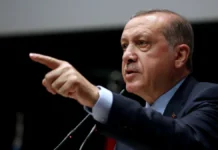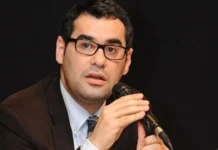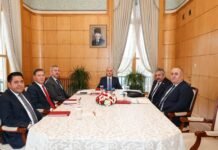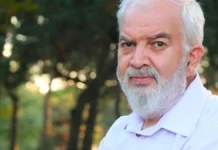
The US State Department has stressed the importance of journalists conducting their work free of harassment and threats following the rebuke of a Voice of America reporter by a Turkish politician on Tuesday, Turkish Minute reported.
Turkey’s far-right Nationalist Movement Party (MHP) leader Devlet Bahçeli rebuked VOA reporter Yıldız Yazıcıoğlu, who was among a group of journalists trying to ask him questions following a party meeting in parliament on Tuesday.
“Mind your own business,” an angry Bahçeli told Yazıcıoğlu in front of the cameras and then walked away when the journalist was trying to ask about the murder of Sinan Ateş, the former president of the Grey Wolves, the MHP’s youth wing.
Yazıcıoğlu was also pushed away by an MHP official near Bahçeli.
When US State Department spokesperson Ned Price was asked during a press briefing in Washington on Tuesday about the treatment Yazıcıoğlu received, he said he was not immediately familiar with the incident and would need to look into it.
“What I can say is, as a general matter, is that we support freedom of the press, the ability of journalists and reporters to conduct their indispensable work free of harassment, free of threats, free of violence around the world. It’s a principle that applies to countries around the world. So we’ll have to look into that,” said Price.
A statement made by the party later described the journalist as a “provocateur” and “agent,” claiming that her attitude does not comply with professional ethics.
The MHP statement said the journalist’s links to “anti-Turkey” journalist Can Dündar, who lives in exile, and her being a staff member of VOA, which is “one of the leading propaganda tools of the US,” reveal the unhappiness of these circles with the MHP and Turkey.
To another question asking about an access ban imposed on VOA last year by Turkey’s broadcasting watchdog, along with the Turkish edition of Deutsche Welle, and whether the US officials bring up the issue during their talks with Turkish officials, Price said in their engagements with their Turkish allies, they raise issues that are of mutual concern, issues that are a concern to them as well.
“We talk quite a bit about security issues, about diplomatic issues, economic issues, but also issues of human rights and civil liberties. Those are a staple of our conversations with our Turkish allies. We emphasize the universality of universal rights. One of those universal rights is the freedom of expression, freedom of assembly, in this case freedom of the press as fundamentally important,” he said.
In a controversial move last year, Turkey’s broadcasting regulator, the Radio and Television Supreme Council (RTÜK), imposed a ban on the Turkish editions of international news websites VOA and Deutsche Welle on the grounds that they refused to comply with an order from RTÜK to obtain broadcasting licenses, which they said would amount to censorship.
The move by RTÜK has been described by media outlets as an attempt at censorship and at expansion of the Turkish government’s control over domestic media to foreign outlets, which are the only source of free and independent journalism for some people in Turkey, where the majority of the media is controlled by the government.
According to Reporters Without Borders (RSF), 90 percent of the national media in Turkey, which was ranked 149th among 180 countries in the RSF’s 2022 World Press Freedom Index, is owned by pro-government businessmen and toe the official line.














